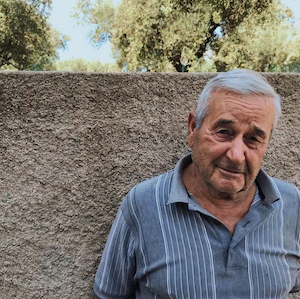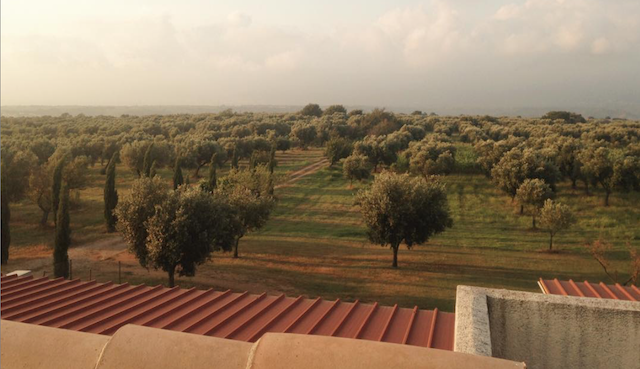“The olive is the land’s most precious fruit but it cannot be harvested without effort. The harvesters work for 7 to 8 hours a day, and in the colder seasons, the effort is tremendous because the job needs to be done quickly. There are direct orders from the owner who urges them because the fruit cannot stay on the ground. Otherwise, it will rot.”
In his 1967 documentary “Tempo di raccolta,” Luigi Di Gianni follows Calabrians as they work in the groves collecting olives for the annual harvest. The majestic beauty of the trees, the equal majesty of generations of women working in concert using time-honored techniques, and Di Gianni’s choice of traditional music together convey the nostalgia of a bygone era.
 The harvesting of olives is a centuries-old tradition that has evolved over time. The southern regions of Italy produce high-quality olive oil with unique tastes and aromas. For insight into the evolution of the practices that go into harvesting olives, I talked with Pennsylvania-based Calabrese olive oil producer Giuseppe “Pino” Pugliano, who co-founded Ciccio’s Olives with his wife, Laura. Their family farm is located in Vena di Máida in the province of Catanzaro. He told me about the modernization of harvesting olives and how the process has changed since Di Gianni made his film in the late ‘60s.
The harvesting of olives is a centuries-old tradition that has evolved over time. The southern regions of Italy produce high-quality olive oil with unique tastes and aromas. For insight into the evolution of the practices that go into harvesting olives, I talked with Pennsylvania-based Calabrese olive oil producer Giuseppe “Pino” Pugliano, who co-founded Ciccio’s Olives with his wife, Laura. Their family farm is located in Vena di Máida in the province of Catanzaro. He told me about the modernization of harvesting olives and how the process has changed since Di Gianni made his film in the late ‘60s.
“We have implemented some new technology to our harvest process and we have learned how to actually treat the plants, meaning not to overwork them. It’s like my dad always said, the plants are like humans. You want to feed them but you don’t want to overwork them. So, we have learned how to cope with the needs of the plants. In Calabria, there are olive trees everywhere. We farm in a small town called Vena di Máida, located in the center of the two seas,” Pugliano explained.
When I asked him if there are still people in the fields physically picking up the olives from the ground, he said that even though this still happens, the new technology has made it easier for laborers. “Now, we lay nets around the trees. We shake the tree, the olives fall into the nets and we then fold the nets. A long time ago, I remember when my mom used to do it. We used to go and I’d get a couple of cents for every bucket of olives and we used to pick them by hand. It was hard work, so technology has helped us.”
He also shared the reasons why the climate of southern Italy is perfect for producing high-quality oil. “I think the quality of the olives that you grow, the soil, the weather. Olive trees don’t like a lot of rain. They actually like dry, hot weather, and it’s the perfect weather in the South because it’s hot during the day and then at night, it cools down a little bit. Since we are near the narrow part of the land, near the ocean, we still get a breeze from the ocean. So, we don’t really need to irrigate. We never irrigate,” he explained.
Pugliano is based in the Unites States while his brother and father tend to the farm in Calabria. His father takes a hands-on approach to the business and is working with his sons to pass his knowledge onto the next generation.
“He always looks at the olives. He grabs a branch and looks at the olives, He tells us if they’re ready or not, if the plants need stuff. It’s kind of crazy how he really knows, and we’re trying to gain some of that knowledge.”
To view “Tempo di raccolta,” click here.
To view a video about the Ciccio family business, click here.
For more on the Ciccio family, click here.
 Fra Noi Embrace Your Inner Italian
Fra Noi Embrace Your Inner Italian







